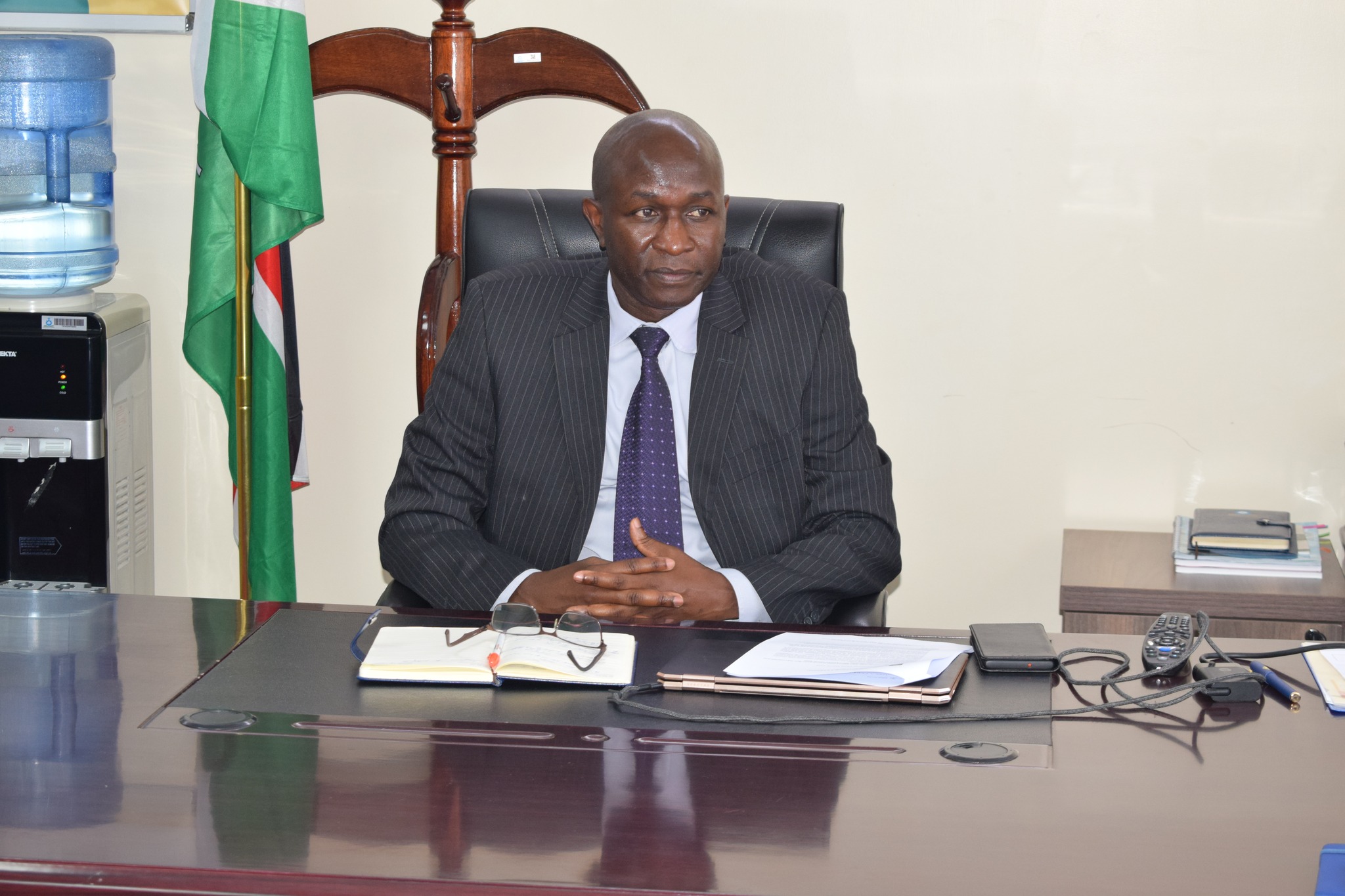Proponents of Educational Psychology like the welder of these words posit: there are individual differences in learners. I sit to write this because of my background as a teacher of English language and Literature. In simple and humble terms, learners do not grasp knowledge at the same pace. With this understanding, fellow tutors strive to teach students at their level of abilities. No wonder, when teachers are going through training, Introduction to Psychology and Education Psychology are part and parcel of common units. This supports the existence of ability grouping, more so in the candidate class.
To bring you to some quick understanding, ability grouping is even evident in how our secondary schools are clustered in the 8-4-4 System of Education that is becoming moribund in 2027. For instance, we have national, extra-county, county and sub-county schools. A meticulous study of the Entry Behaviour – marks that took students to those particular schools – makes us ascertain that most of the students who secured admissions into national schools scooped more marks in KCPE. No wonder, when KCSE results are released, most of the valedictorians we put on a pedestal are always from national schools.
Largely, schools that access success in KCSE focus on heroic academic cultures, puissant programmes and best academic practices. In my wide interaction with schools we lionise as veritable academic giants across the country, ability grouping is embraced as one of the best academic practices. In most cases, ability grouping is an academic practice explored after proper syllabus coverage. While preparing Form 4 candidates for KCSE, the academic teams administer a serious exam in the candidate class. Then, they cluster candidates based on academic performance.
Somehow, the ability groups are not fixed like laws of Medes and Persia. The next serious exam can lead to formation of new groups and so on, and so forth. Schools with several preceptors even identify teachers who can handle different ilk of students based on abilities. For instance, struggling students require a lot of encouragement and support. Likewise, top achievers require a serious push to score more.
To augment my argument. Schools that attain peak performance work as a TEAM – Together Everyone Achieves More. This abuts on wise words of Michael Jordan, “Talent win games, but teamwork and intelligence win championship.” Therefore, with a fantastic football analogy, this is how I see it: A staff or a particular department in a school is like a soccer team. For the team to scoop a highly-coveted victory, there should be proper positioning. In soccer, there is a stupendous striker, marvellous middle-field star or deft defender.
Getting down to the brass tacks of this piece, allow me contend, after careful consideration, the school can settle on any of the ability grouping. Of course, every academic move must be explained to students so that it does not turn to be an egg on the face of teachers. It is wise to invite people like the weaver of these wise words to convince the conscience of Form Four candidates. More so, on how this academic practice is widely accepted as a practical strategy in the academic agora. My rich experience as a peripatetic speaker in schools in over 40 counties, makes my to pen point out that some good ideas have been jettisoned in some schools due to lousy explanation. There are 5 major approaches to ability grouping as pointed out in this treatise: General, subject-based, academic villages, parenting groups or family units and students’ pairing
𝟏. 𝐆𝐞𝐧𝐞𝐫𝐚𝐥 𝐀𝐛𝐢𝐥𝐢𝐭𝐲
In this type of ability grouping, the school can come up with classes based on the general academic ability of students in the candidate class. In a class of 150 students, the school can come up with three streams – top 50, middle 50 and bottom 50. This approach can help the teachers to fatten or push the head, as they cut or reduce the size of the tail. Those who have rich expertise and experience in the noble art of dispensing knowledge, know, there is nothing challenging like teaching people with mixed abilities. More so, learners on extreme ends.
That is why we must think about all the abilities: Push top achievers to score more. As we assist struggling students embrace the Kaizen Principle of Continuous Improvement. In the whole scheme of things, teachers should be careful on how they introduce ability grouping to students so that they do not balkanise the candidate class based on academic potential. In case you label the top class as Harvard and the bottom class as Maseno, this will be a recipe for chaos and conflict. For the Maseno class may feel inferior or rejected, hence become dejected like wet hens. Meaning, in case it is not well-thought-out, the bottom class may decide to engage in self-pity and weld themselves together as a camp of cheerful pessimists. They may fail to try, and cry.
Fellow preceptors should take a mental flight to what they learnt in Sociology of Education as a common unit. There is a Sociological Theory called Labelling Theory, which cautions tutors against labelling learners as weak or sick. Those who are at home with Self-fulfilling prophesies – Golem, Pygmalion or Rosenthal and Galatea Effects – are also aware that this has a far-reaching effect on the psyche and psychology of learners. To veer off a bit, just like in a family set up, children are not wired the same. But they all belong to the same parent or guardian. Our venerable elders in Gem, at the sultry shores of Nam Lolwe argue, just like the fingers of a human being, children are different. Therefore, parenting with purpose does not abut on comparing children, but supporting them based on their uniqueness. Therefore, a wise parent employs different parenting skills and styles: a unique technique of parenting every child. Only ignorant parents use the same script in the theatre of parenting. The bottom line is; you cannot raise the last born the way you brought up the first-born.
READ ALSO:
PS Muoria urges Coast TVET Principals to focus of RPL Programme
𝟐. 𝐒𝐮𝐛𝐣𝐞𝐜𝐭-𝐁𝐚𝐬𝐞𝐝
In this approach, subject teachers group students according to the performance in their subjects. Teachers should go ahead and organise one-on-one incisive conferencing sessions with each group. The end-in-mind is; the bottom group is able to score above a C- (minus) in their subjects. Top achievers must be pushed to score straights A’s. By the same token, through data-driven decision-making, teachers can identify subjects that require affirmative action; this is broadly based on the previous and current candidate classes.
𝟑. 𝐀𝐜𝐚𝐝𝐞𝐦𝐢𝐜 𝐕𝐢𝐥𝐥𝐚𝐠𝐞𝐬
In this case, teachers group students based on their common targets or aspirations. This style can take care of repeaters, prefects, ‘A’ students. Teachers should take care of every village. Push the group to operate at their ultimate best. Some schools have students who are top achievers, who in real sense, can feature in the top 20 or 100 in national ranking. This calibre of candidates should get serious push, and be made to stretch beyond elastic limits. Or else, they can choose to become complacent, settle for less, and be prone to mediocrity: Being on top of the bottom. Or at the bottom of the t
𝟒. 𝐏𝐚𝐫𝐞𝐧𝐭𝐢𝐧𝐠 𝐆𝐫𝐨𝐮𝐩
Parenting groups are also known as family units. In this awesome approach, there is the formation of groups where teachers become surrogate parents. There should be regular meetings to provide direction and focus: to keep them on the right track. Form Four candidates should not operate on laissez faire. Teachers’ ubiquity and eternal vigilance and constant monitoring is supreme.
𝟓. 𝐒𝐭𝐮𝐝𝐞𝐧𝐭𝐬 𝐏𝐚𝐢𝐫𝐢𝐧𝐠
One of the stupendous strategies we have been sharing with struggling students is that they should pair up with top achievers. As the high fliers commit themselves to help the struggling students through peer teaching, they attain marvellous mastery of content taught. In the long run, this infusion and collation of abilities, legs up the poor performance of average students. It is imperative to not that students must not be paired by teachers. Form Four candidates who are conscious of climes and times, can go out of their way and seek assistance.
By Victor Ochieng’
𝐓𝐡𝐞 𝐰𝐫𝐢𝐭𝐞𝐫 𝐫𝐨𝐥𝐥𝐬 𝐨𝐮𝐭 𝐚𝐜𝐚𝐝𝐞𝐦𝐢𝐜 𝐭𝐚𝐥𝐤𝐬 𝐚𝐧𝐝 𝐭𝐫𝐚𝐢𝐧𝐢𝐧𝐠 𝐩𝐫𝐨𝐠𝐫𝐚𝐦𝐦𝐞𝐬. vochieng.90@gmail.com. 0704420232
You can also follow our social media pages on Twitter: Education News KE and Facebook: Education News Newspaper for timely updates.
>>> Click here to stay up-to-date with trending regional stories
>>> Click here to read more informed opinions on the country’s education landscape






